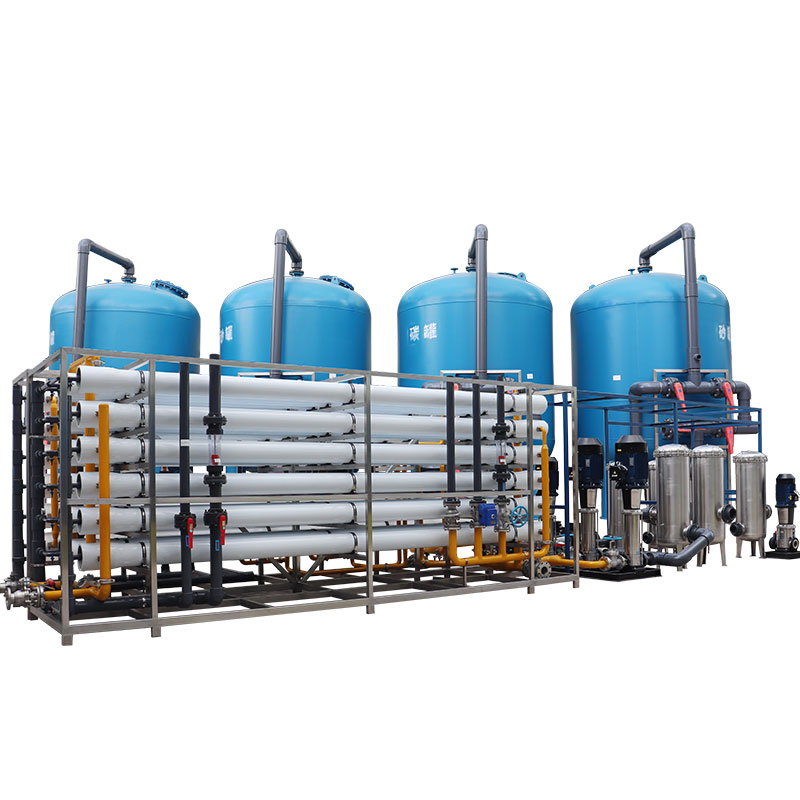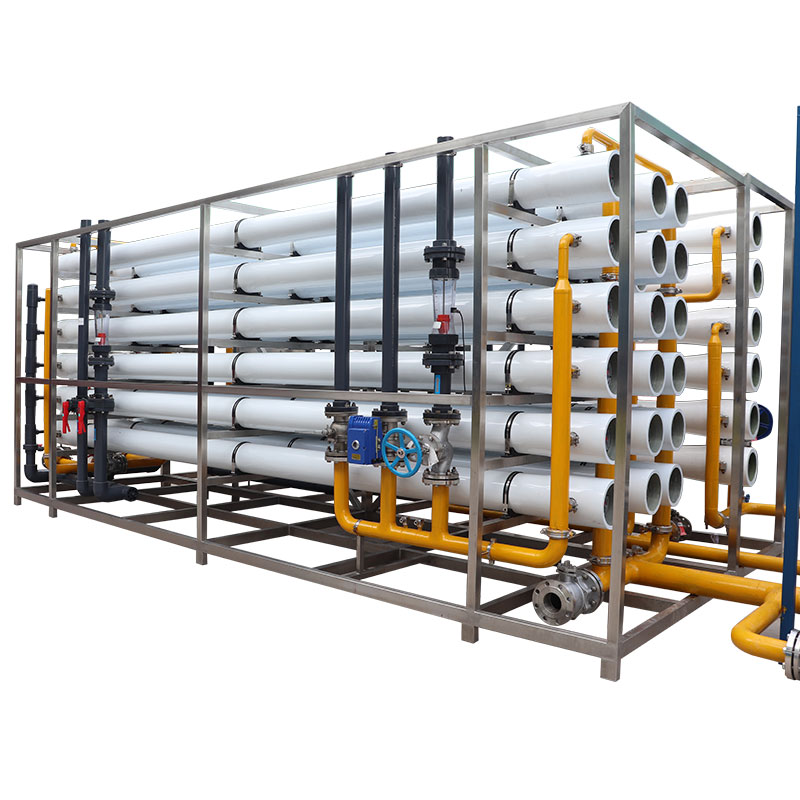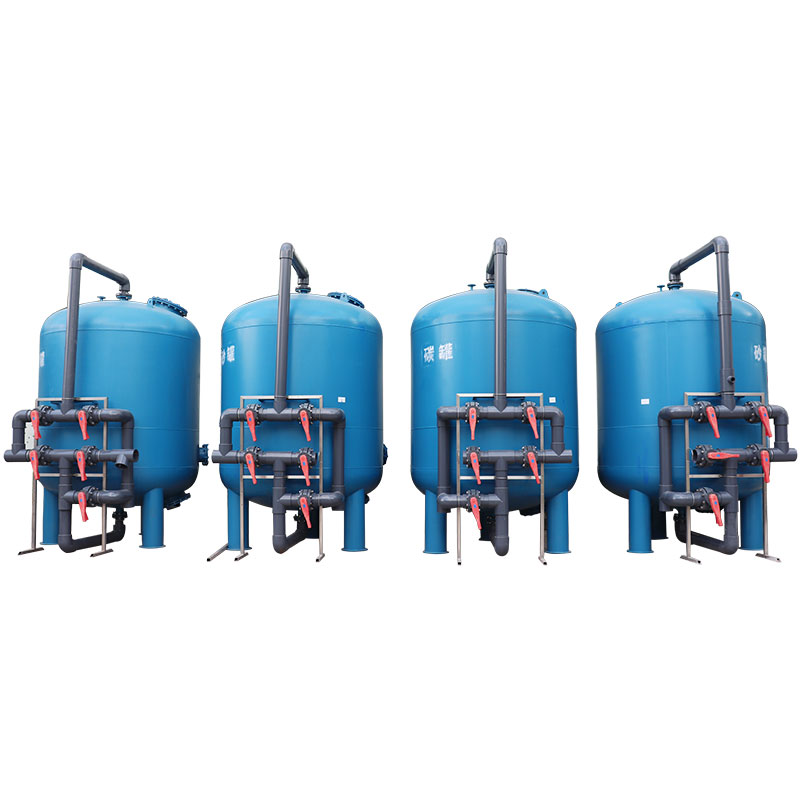What is the process flow of industrial water treatment plant?
The process flow of an industrial water treatment plant is a complex and sophisticated system involving multiple steps and processes to ensure that water quality meets industrial production and environmental requirements. The following is the typical process flow of industrial water treatment plant:
1. Preprocessing stage
In industrial water treatment plants, the pretreatment stage is the first step in the entire treatment process. At this stage, the raw water is usually passed through a screen or grid filter to remove large particulate impurities and suspended solids. The water then enters a settling tank or sedimentation tank, allowing suspended solids to settle to the bottom, thereby purifying the water.
2. Coagulation and flocculation
Next comes the coagulation and flocculation stage, a step designed to agglomerate fine particles and colloidal substances in the water into larger clusters that can be removed more easily later. Coagulants and flocculants are usually added to promote particle aggregation through stirring or agitation and sedimentation.
3. Precipitation and Settlement
After coagulation and flocculation, the water enters the sedimentation tank or sedimentation tank for sedimentation and settling. In this process, due to gravity, the particles that have agglomerated into clusters will settle to the bottom to form mud, while clear water flows out from above.
4. Filter
The precipitated water enters the filtration system for filtration to remove residual suspended solids, fine particles and microorganisms. Commonly used filter media include sand filters, activated carbon, multi-media filters, etc., which can effectively filter out impurities in the water and improve water quality.
5. Disinfection
The last major step is disinfection, which aims to kill bacteria, viruses and other pathogens in the water to ensure that the water quality meets drinking water standards or industrial production requirements. Commonly used disinfection methods include chlorine disinfection, ultraviolet disinfection and ozone disinfection.

What are the technological innovation and development prospects of industrial water treatment plants?
As a key water resources management and environmental protection facility, industrial water treatment plants have attracted much attention for their technological innovation and development prospects. The following is an analysis of technological innovation and development prospects of industrial water treatment plants:
1. Application of new materials and technologies
With the continuous advancement of science and technology, new materials and technologies continue to emerge, providing the possibility for the improvement of industrial water treatment plants. For example, the application of nanomaterials, membrane separation technology and intelligent monitoring systems can improve treatment efficiency and water quality.
2. Intelligence and automation
The application of intelligence and automation technology will become an important trend in the development of industrial water treatment plants. Through intelligent monitoring, remote control and data analysis, real-time monitoring and management of water quality can be achieved, improving operational efficiency and response capabilities.
3. Comprehensive utilization of resources
In the future, industrial water treatment plants will pay more attention to comprehensive utilization of resources and circular economy. By recycling energy, materials and nutrients in wastewater, resources can be reused and recycled to reduce costs and environmental impact.
4. Unconventional water resource utilization
With the increasing shortage of water resources, industrial water treatment plants will pay more attention to the utilization of unconventional water resources, such as seawater desalination, sewage reuse and rainwater collection. These technologies will become important means to solve the problem of water shortage.

How does the industrial water treatment plant ensure the treatment effect?
1. Process optimization and equipment update
Industrial water treatment plants need to continuously optimize process processes and update equipment and technology to improve treatment efficiency and water purity. By introducing advanced processes and equipment and optimizing operating parameters, the treatment effect can be effectively improved.
2. Quality control and monitoring
Industrial water treatment plants need to establish a complete quality control system to monitor and adjust key parameters in the treatment process in real time. Regularly conduct sampling and analysis of the treated water quality to ensure that the water quality meets the standards and meets the requirements of industrial production.
3. Personnel training and management
Operators of industrial water treatment plants need to receive professional training and skills improvement, and master the principles and operating techniques of water treatment processes. At the same time, we strengthen the daily maintenance and management of equipment to ensure stable operation of the equipment and ensure that the treatment effect continues to meet standards.

What is the impact of industrial water treatment plants on the environment and production?
1. Environmental Impact Assessment
The operation of industrial water treatment plants will have certain environmental impacts, including wastewater discharge, energy consumption, solid waste treatment, etc. It is necessary to conduct a comprehensive environmental impact assessment and take effective control measures to reduce adverse impacts on the environment.
2. Improved production efficiency
Effective treatment of water quality through industrial water treatment plants can ensure a stable supply of water quality required in the industrial production process, improve production efficiency and product quality, reduce production costs, and promote industrial development.
3. Water resources protection and sustainable development
The construction and operation of industrial water treatment plants help protect water resources, reduce over-exploitation of surface water and groundwater, and promote the rational utilization and sustainable development of water resources. At the same time, by purifying wastewater and reusing it, we realize the recycling of water resources and reduce the pressure on the environment.
The process flow of industrial water treatment plant is complex and rigorous, involving multiple links and technologies, and is of great significance to both industrial production and environmental protection. By continuously optimizing the process flow and management measures, we can ensure the stable operation and good effect of the industrial water treatment plant, and provide reliable water resources guarantee for industrial production and social development.




